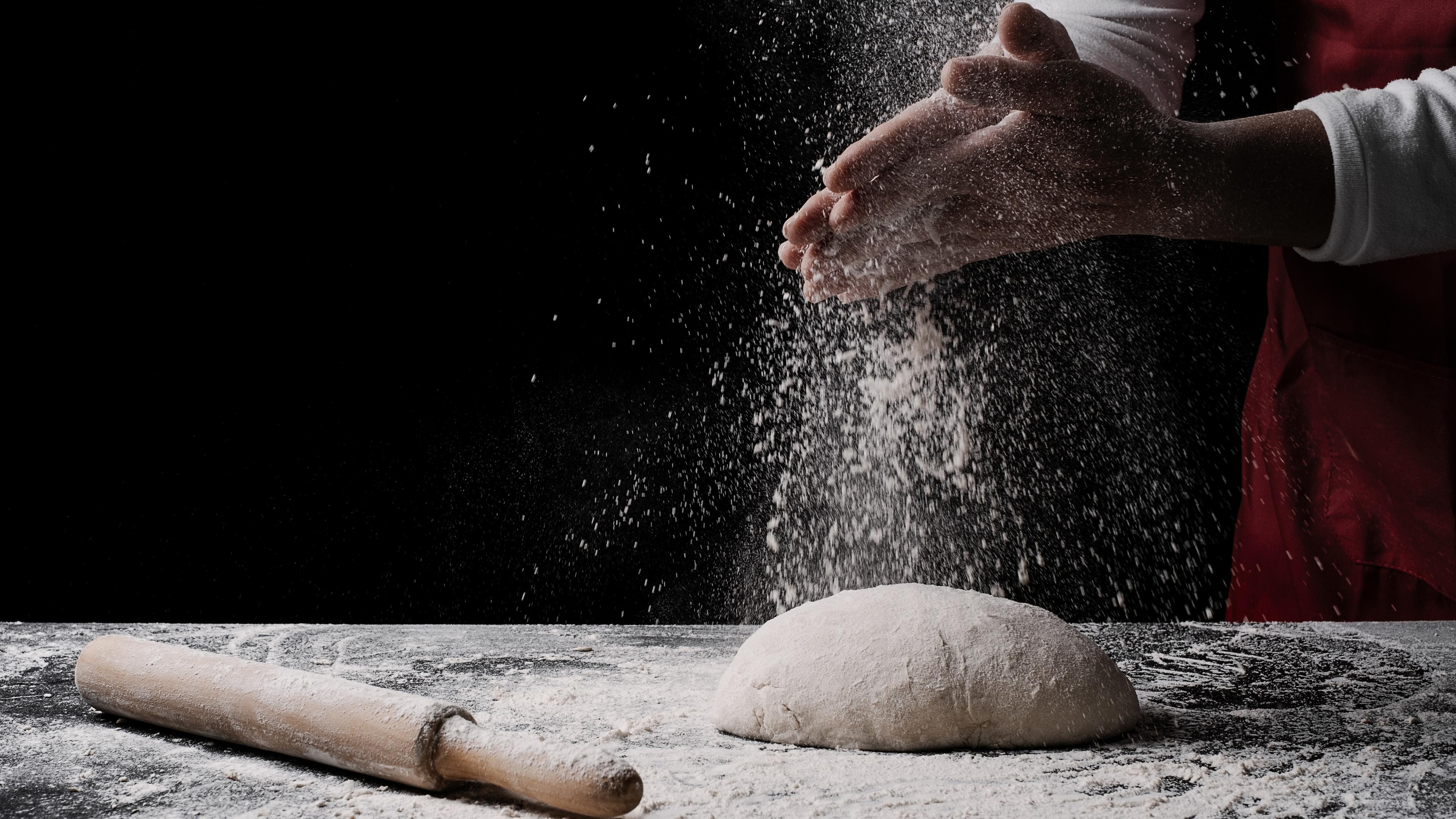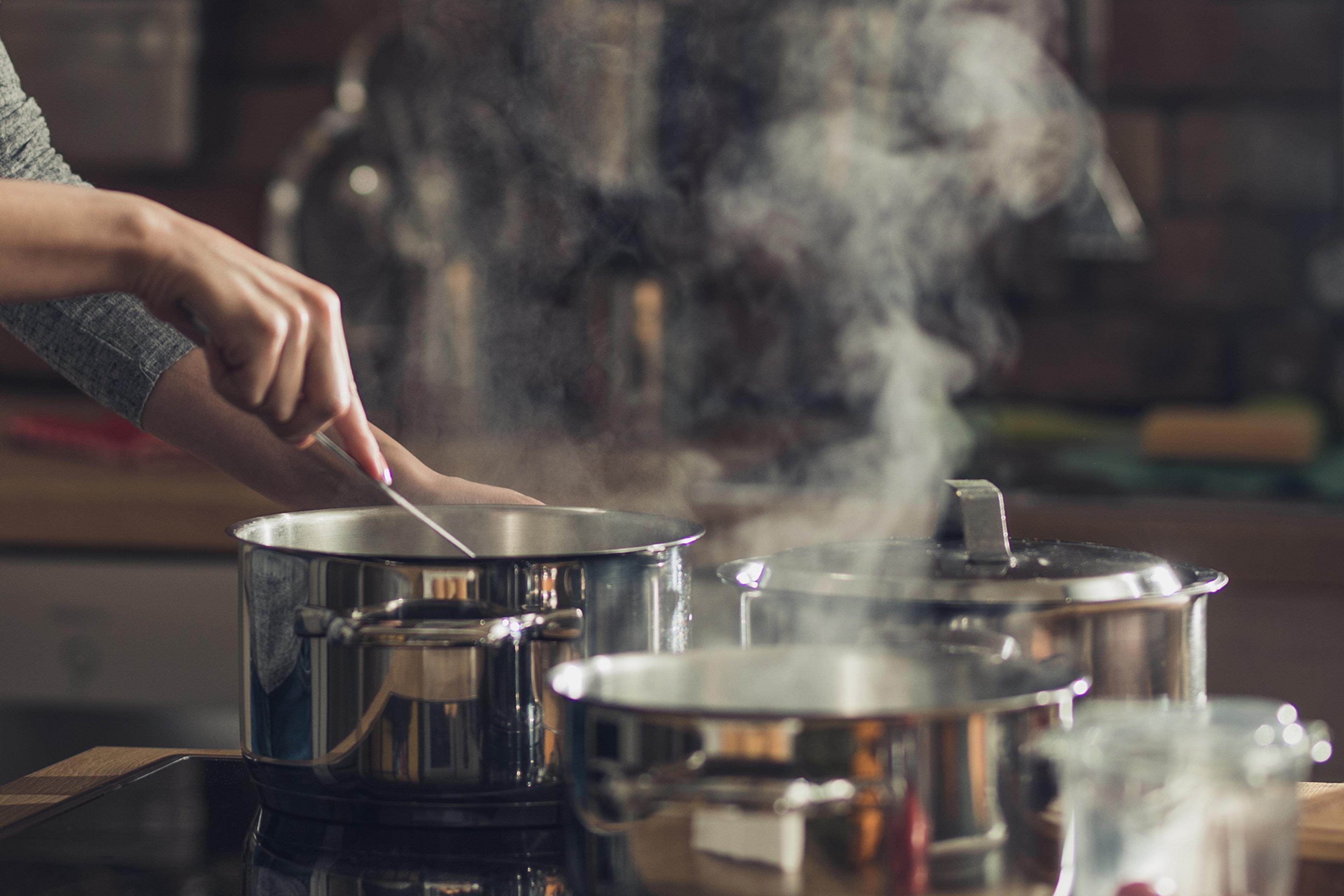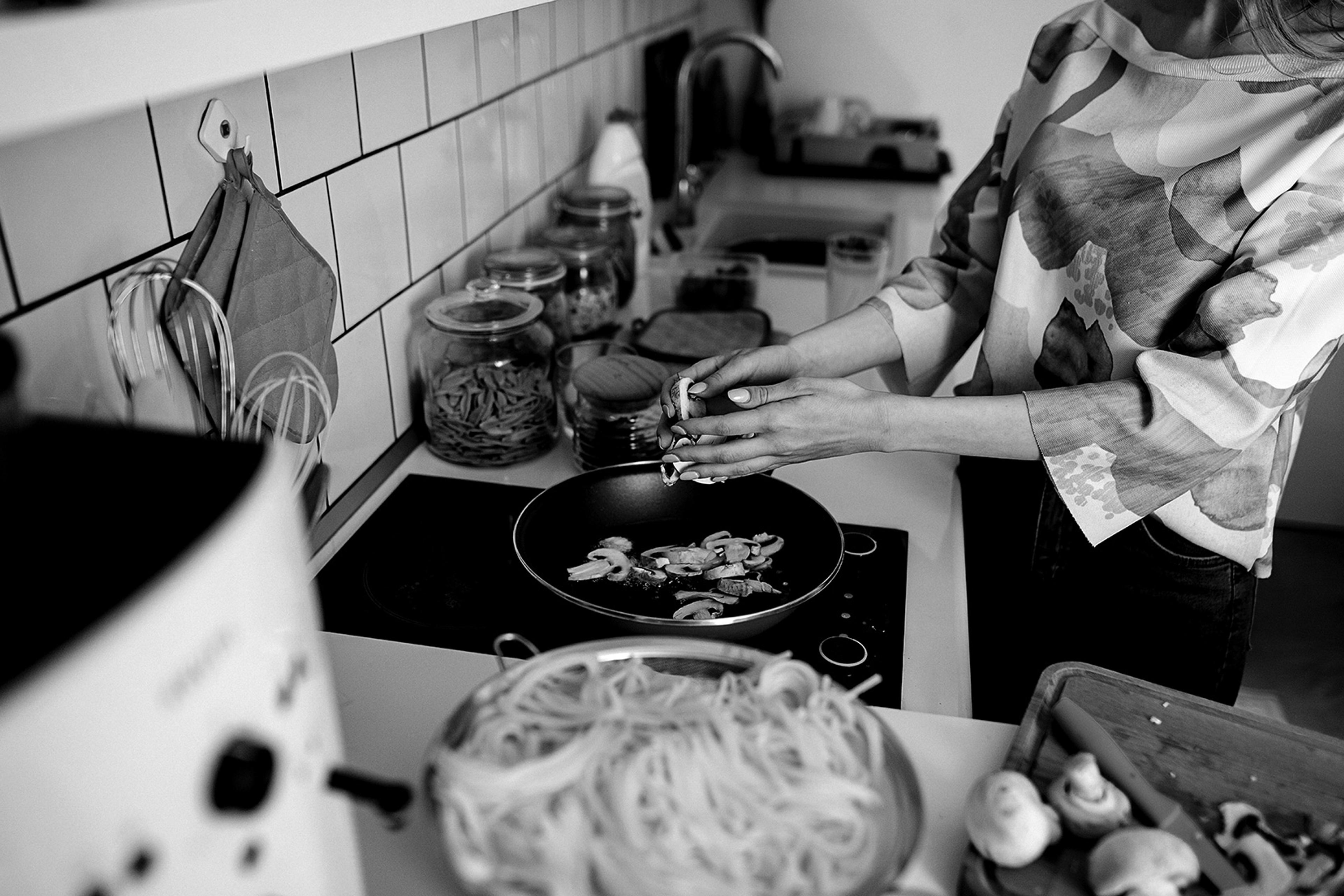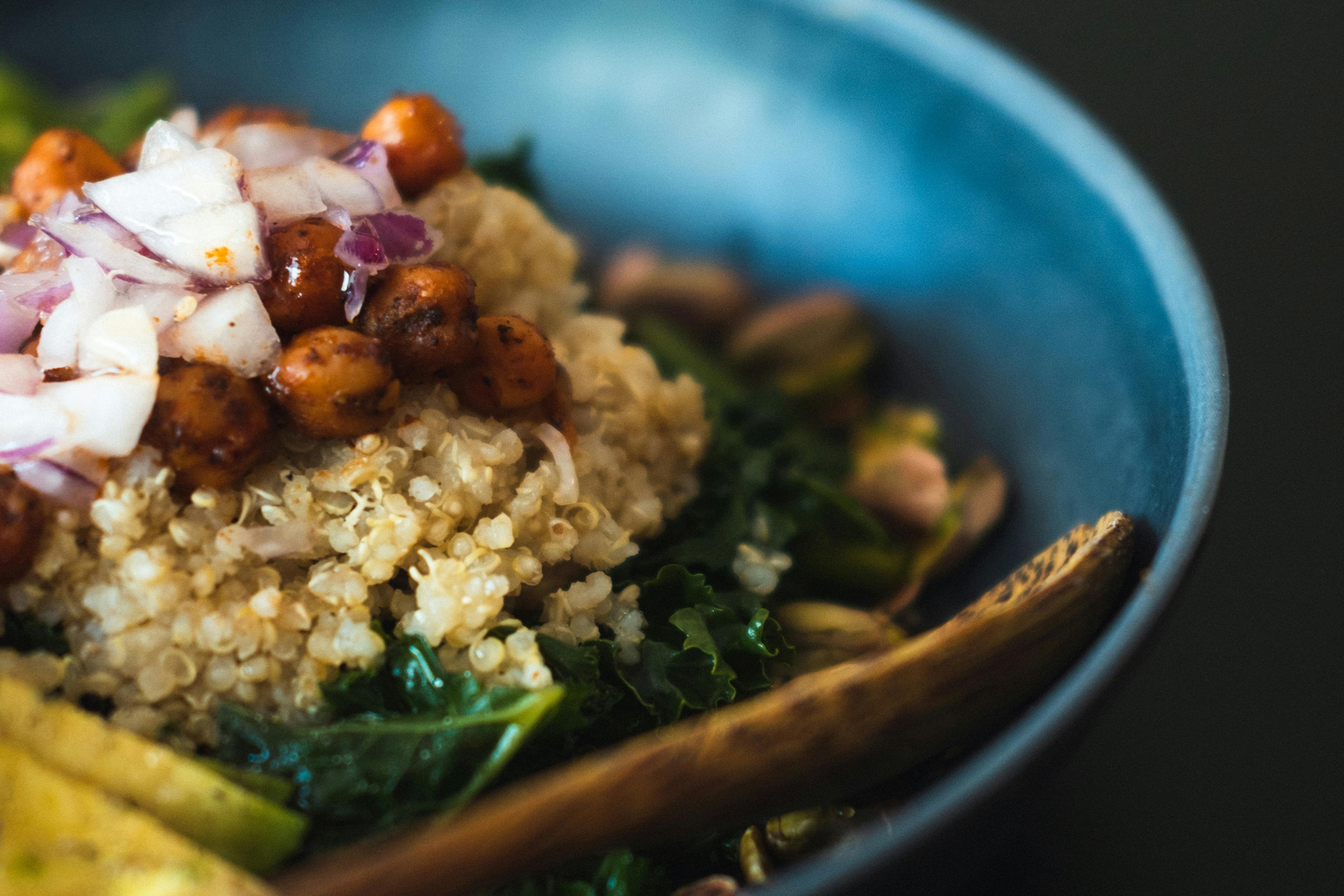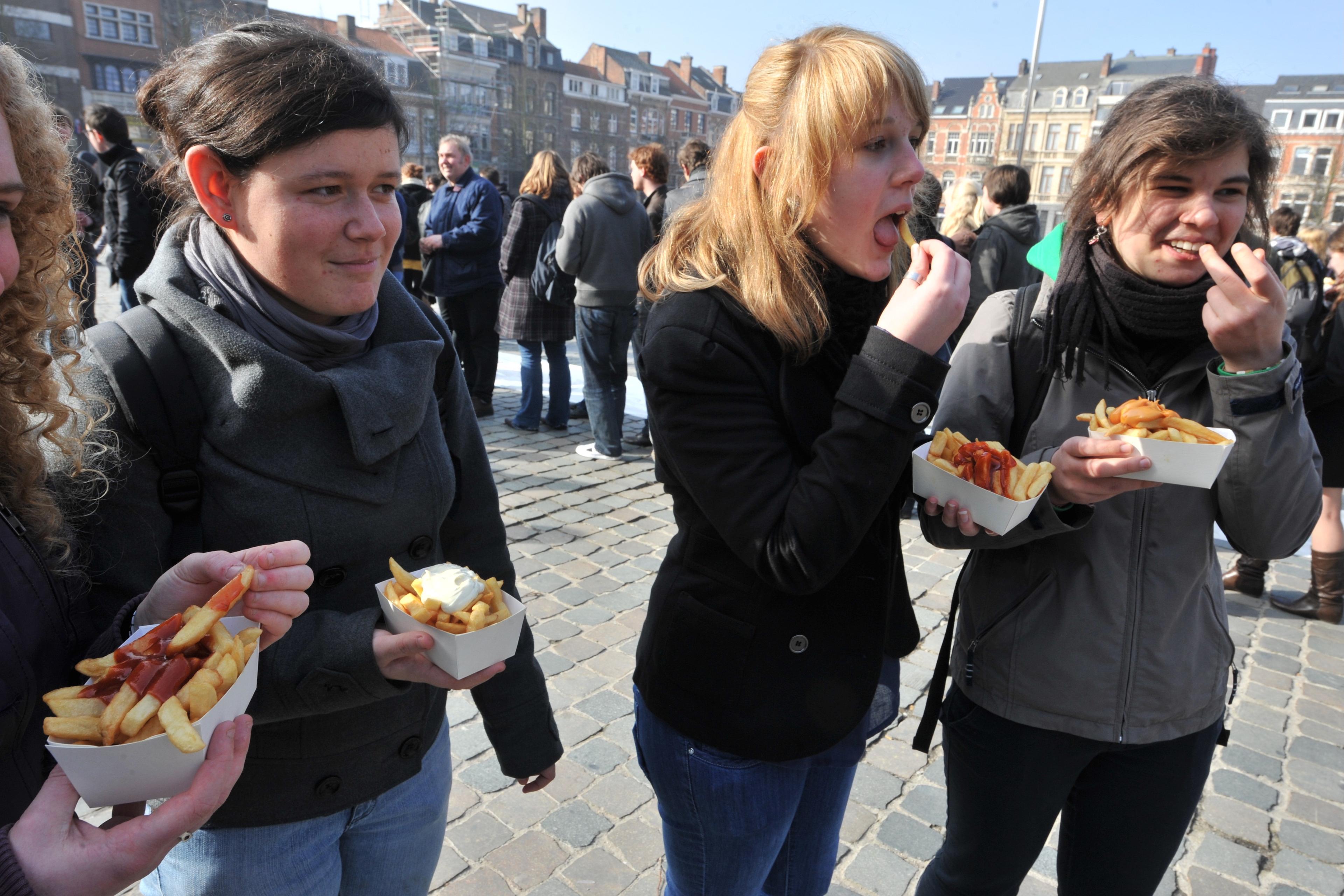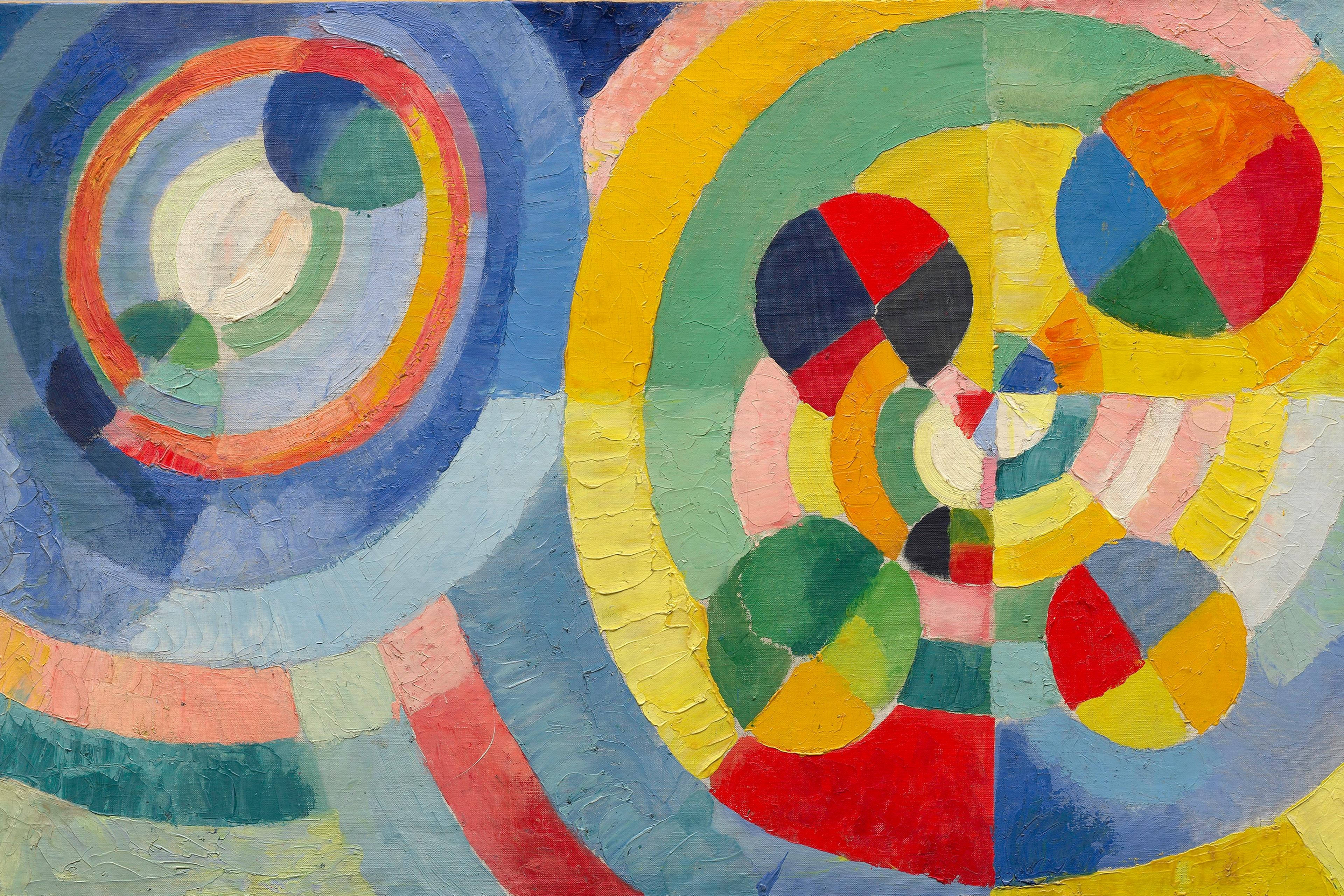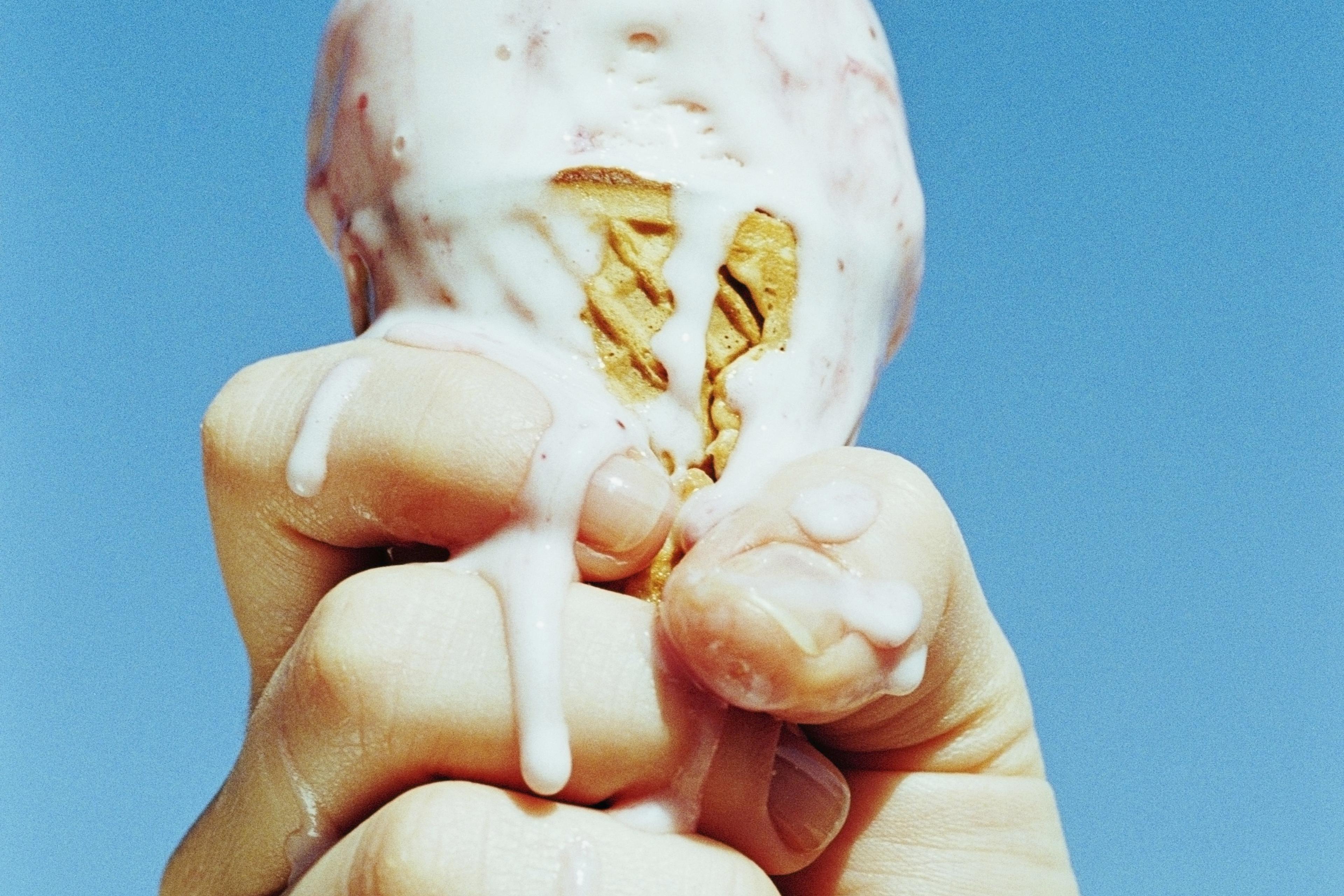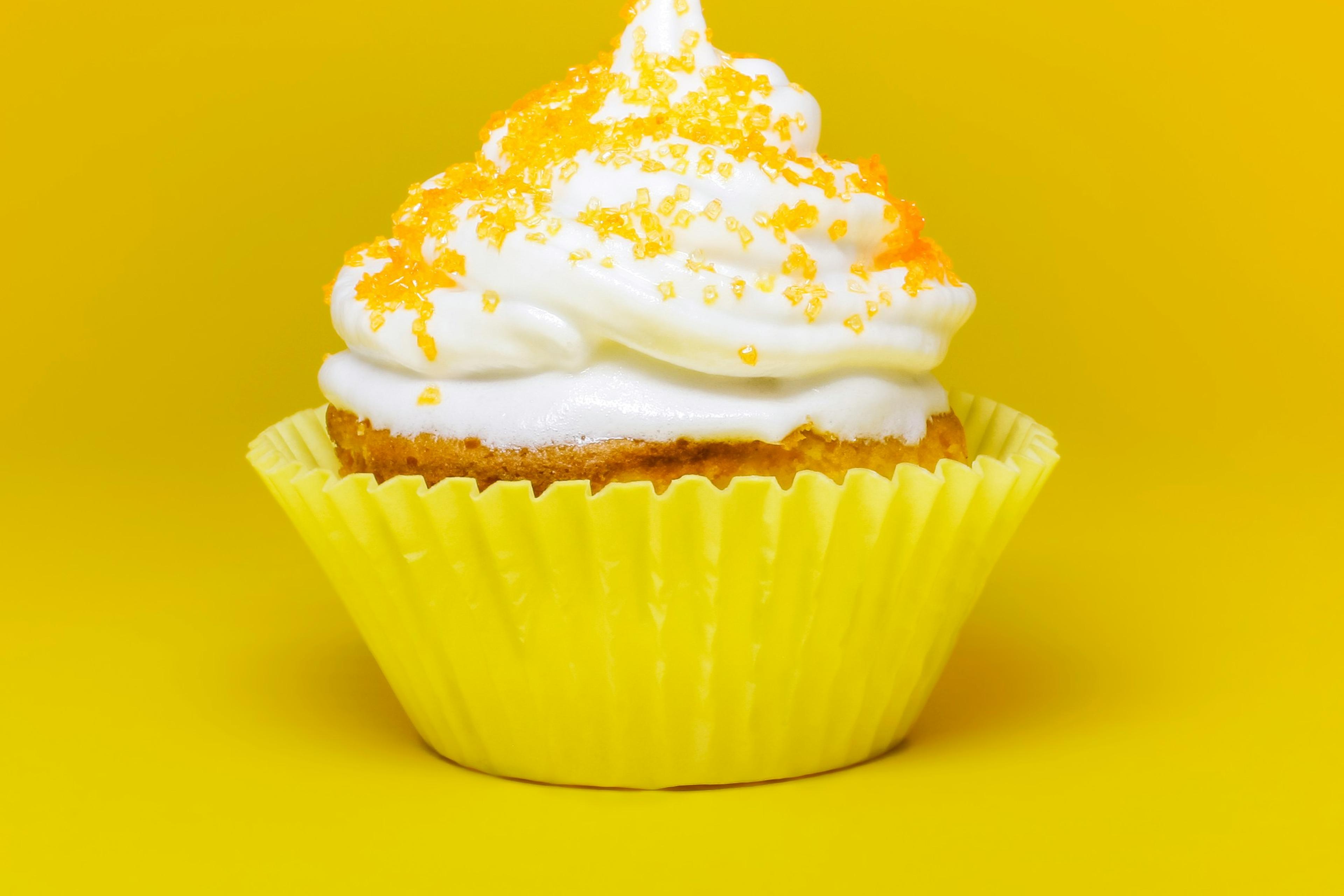As a people-pleaser and a freelance writer who’s constantly craving approval, I feel overwhelmed on a weekly basis. My mind often races unstoppably. Of course, I’m aware of the various, popular anti-anxiety techniques: meditate, breathe, journal, and so on. I’ve tried all of them, but I failed. Or, perhaps, they failed me.
I spend most of my day immobile, sitting at a desk, quietly trying to weave together the ideas that dance messily in my head. Relaxation exercises that involve sitting or lying down just feel too close to what causes my anxiety in the first place. When I’m finished with work, I’m looking to do something drastically different. That might be how it is for you, too: perhaps you need to hit the pavement in running shoes, take art classes, go for a swim, or break away with some other activity. Maybe you are still looking for one.
For me, the activity that opens up a restorative mental space is cooking. I can spend whole afternoons in the kitchen preparing granolas, quiches or breads without noticing the time pass. Cooking makes me forget the notion of time altogether, with the exception of when the timer reminds me to punch down the air in my resting dough. I personally find baking to be the most stress-relieving form of cooking. I happen to be a big bread-eater (of course, I’m also French). But I believe that each person can find their own respite in preparing the food they love most, whether it’s pastries, sushi or smoothies.
Cooking, in short, is how I mindfully unwind. And the world of mindfulness, so commonly recommended to those who need to decompress, is bigger than you might think. Generally speaking, mindfulness refers to the practice of being conscious of one’s present thoughts, feelings, bodily sensations and/or surrounding environment, and doing so without judgment. Mindfulness meditation is a widely practised way of achieving a state of mindful awareness, but it’s not the only option. ‘All mindfulness is good mindfulness,’ says Todd Essig, a training and supervising psychoanalyst at the William Alanson White Institute in New York City, and a fervent advocate of the mental benefits of home cooking. ‘Whether it’s meditating, running or cooking that brings you there, that’s great.’
Whenever I’ve had a few stressful weeks, I typically schedule a ‘cooking day’. I make a plan for what I’ll be eating the following week, grab some ingredients and spend the afternoon making three or four recipes. Working on recipes that I already know builds my confidence; trying out some new ones adds an element of surprise. In the end, I feel satisfied by the products of my work, even if not all the recipes were a success. After hours spent moving around the kitchen, absorbed in the process, I actually appreciate feeling physically exhausted – a sensation that I rarely experience these days – even as I feel mentally refreshed.
After reflecting on its role in my life, I started asking others if cooking was ever more than ‘just cooking’ to them. When I asked my friend Laertis, a Greek musician in London, why he likes cooking, he said that it helps him relax at the end of the day, especially when he improvises with recipes. ‘I’m just going with the flow of the process, combining different ingredients,’ he says.
Emmanuelle Turquet is the founder of Cuisine Thérapie, a personal development coaching service with a focus on recipeless cooking. For her, too, cooking is a way to enhance one’s connection to the present: ‘We are much more in the physical, in the sensory,’ she tells me. When practising mindful cooking, she says, ‘we’re really in the moment, connected to ourselves and to what we feel.’ Recipeless cooking is not my go-to method, despite Turquet’s recommendation. However, I have often found a kind of middle ground, by using a recipe for inspiration but not necessarily following it strictly (I might alter certain ingredients or amounts, for instance) – which allows me to be a bit freer and more in tune with my present experience.
A key feature of any form of cooking is that it engages all five senses. This multisensory aspect of cooking reminds me of a coping tool for stressful situations, the 5-4-3-2-1 technique. It allows you to quickly reconnect with the present moment by encouraging you to notice five things you can see, four things you can feel, three things you can hear, two you can smell, and one you can taste. Giving it a try can demonstrate the benefits of grounding yourself in sensory experience; you might find that you feel a bit calmer or less overwhelmed at the end. Cooking allows you to do something similar, paying attention to things such as the chopping of colourful vegetables, the texture of dough, the sizzling of a pan, the aromas of a spice mix and, of course, the taste of ingredients and the final product. In the kitchen, you can thoroughly engage all your senses – it’s simply a matter of deciding to consciously attend to each one.
During an episode of the Happiness Lab podcast, Gretchen Rubin, the author of the book Life in Five Senses (2023), told the host Laurie Santos that, for much of her life, she hadn’t adequately reflected on her own sensory experiences: ‘I didn’t know … how much I am attuned to the sense of touch and how much I love certain touch experiences. Even things like peeling hard-boiled eggs.’ Listening to this, I came to realise why baking bread is, by far, my favourite form of cooking. It’s not the pungent smell of yeast, the taste of raw bread, the appearance of a pale-white ball of air, nor the aggressive sounds of my mixing machine – it’s the final rolling of the dough into a braided brioche or a thin baguette. It is the Play-Doh-like feeling of this shaping that makes it such a pleasant activity.
While I find cooking restorative in part thanks to the mindful attitude it encourages, it can also serve, according to Essig, as a sort of playtime. When cooking for your own recreational reasons, ‘You’re able to be in this focused, consequence-free place where you’re just shelling your fava beans, putting together your sauce and just having a good time,’ he says. ‘You’re back to being four years old.’
Much of the beauty of childhood lies in being able to act without worry, to be curious and daring without hesitation. It is a state that many of us long for in our stressful adult lives, and that we might think we aren’t ‘allowed’ to access. Cooking helps me reclaim this state. When I bake cookies, I like to top them with golden pearls or sprinkles, or make funny shapes with a knife or other tools. Even if it doesn’t come out very well, I don’t mind much because I don’t do it for the sake of beauty, just for the fun of it. Some regular play in the kitchen, then, can be a means of reconnecting to this way of being.
Another important element of cooking is that, as much as it encourages you to get lost in the present moment, it’s also connected to and shaped by the past. What you choose to cook, and the way you prepare it, might emanate in part from the preferences and techniques of your parents, grandparents, friends or partners. Each smell and taste has the power to resuscitate certain memories.
This link to the past is part of cooking’s psychological richness and its potential to restore. ‘Cooking is very much tied to the memories [of] who loved you, who you loved,’ Essig says. Of course, as he points out, food and eating can mean very different things to different people; for some, the associations they evoke (eg, with a difficult childhood, or struggles with disordered eating) might not be happy ones. In these cases, cooking might not be the best way to practise mindfulness or play, at least for the time being. However, as Rubin discussed on the Happiness Lab podcast, one can also deliberately use the senses, including smell, in the creation of new memories. She shares the example of a couple using a particular scent during their honeymoon to allow themselves to tap into happy, scent-triggered memories of that time for the rest of their lives. Trying new recipes and new ingredients, and choosing from the most fragrant ones (such as orange blossom or garam masala), might help you more easily tap into any positive memories you create in the process of cooking food and sharing it with others. You are cooking, in this sense, for your future self. And, if you are wise in your choice of healthy ingredients, the food itself could have subsequent benefits for your psychological wellbeing.
If you’re just developing a cooking habit, I also suggest that you start by making things that are easy for you. The first time I tried easing my mind with cooking (following a breakup), I made my two favourite dishes: a quiche served with a tabbouleh salad. For a whole hour, it was simply a matter of chopping ingredients and mixing them together. It was hard to fail, and just easy enough to get me started.
Cooking is often seen either as a chore or as a passion. But as my own and other people’s experiences show, it can also be a soothing activity that connects you at once to the past through memory, the present through the senses, and the future through the physical and mental nourishment it provides. The next time you step into the kitchen and try your hand at a new dish, try to consciously take notice of what’s going on in your mind and in your body, of what sorts of feelings cooking brings out in you.
